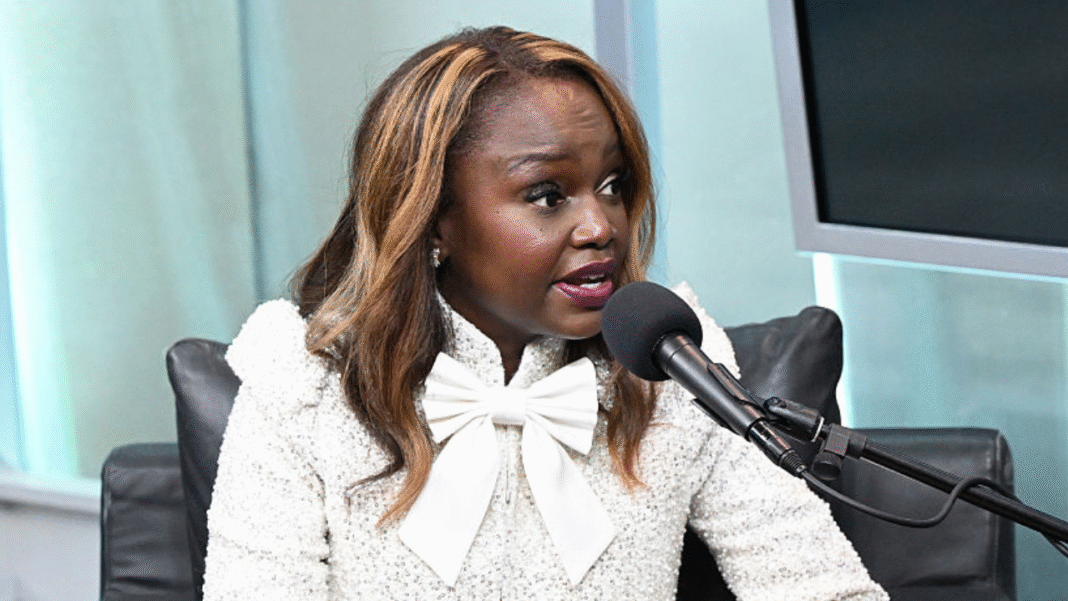Karine Jean-Pierre: A Historic Press Secretary Under Fire
Karine Jean-Pierre has recently made headlines, not only for her groundbreaking role as the first Black and LGBTQ+ White House press secretary but also for the fiery criticism she’s facing from political adversaries. In a notable incident aired on CNN, former White House official Katie Miller publicly labeled Jean-Pierre as “incompetent,” alleging she is a prime example of why Diversity, Equity, and Inclusion (DEI) initiatives fail.
Jean-Pierre’s recent surge in media attention corresponds with the promotion of her new book, Independent: A Look Inside a Broken White House, Outside the Party Lines. In this candid memoir, Jean-Pierre delves into her experiences at the heart of the Biden administration and reflects on what she characterizes as a betrayal of President Joe Biden, a sentiment that played a significant role in her decision to leave the Democratic Party.
The Critique from Katie Miller
During her appearance, Katie Miller, who has a background as an advisor in the now-defunct Department of Government Efficiency under Elon Musk, remarked, “I saw her interview this morning in *The New Yorker…she is quite incompetent to do the job, right? This is what Republicans have been saying for years now.” This comment came in the context of a broader discussion on Jean-Pierre’s qualifications, which Miller dismissed despite Jean-Pierre’s extensive experience in government and policy.
Miller’s critique primarily revolved around the notion that Jean-Pierre was appointed through a DEI initiative, an assertion she used to argue against the effectiveness of such programs in hiring the most qualified candidates. “She is just another evidence that DEI doesn’t work…you want to hire the best for the role, not just based on skin color,” she declared.
Support for Jean-Pierre’s Qualifications
Not everyone agrees with Miller’s assessment. Karen Finney, a seasoned political consultant, countered Miller’s argument by highlighting the double standard in the application of DEI measures. In her defense of Jean-Pierre, Finney pointed out that current White House Press Secretary Karoline Leavitt—who is 28—could similarly be considered a product of DEI, questioning why one is critiqued while the other is not.
CNN anchor Jake Tapper also came to Jean-Pierre’s defense, acknowledging her prior success as a commentator. “I mean, without getting into the job I thought she did as press secretary, it didn’t seem crazy to me because she was eloquent as a commentator,” Tapper noted.
Jean-Pierre’s Journey to the Podium
Karine Jean-Pierre’s rise to prominence is layered and compelling. Appointed as press secretary by President Biden in May 2022, she was praised for her “experience, talent, and integrity” essential for such a challenging role. This followed a distinguished career as an advisor to Biden during his vice presidency and active participation in several Democratic campaigns, including those of Barack Obama and Biden himself.
Jean-Pierre’s educational background also underpins her qualifications. With a pre-med degree from the New York Institute of Technology and a master’s in public policy from Columbia University, she has consistently demonstrated her intellectual capability. Her academic journey eventually led her back to Columbia as a faculty lecturer, further solidifying her expertise.
The Shift in Political Allegiances
One of the more intriguing aspects of Jean-Pierre’s recent narrative is her shifting political allegiances. Her decision to leave the Democratic Party has drawn significant interest and discussion. As she articulates in her book, this departure reflects a broader sentiment of disillusionment with party politics and a yearning for greater independence.
Jean-Pierre’s dual identity as a Black and LGBTQ+ woman adds layers to her story, making it not just a political one but also a personal narrative of navigating societal and institutional biases. With each interview and public appearance, she brings her unique perspective to the forefront of national discourse, proving that the roles of visibility and representation in politics extend beyond mere tokenism.
The Future Ahead
As Jean-Pierre continues to promote her book and express her views on her time in the White House, she remains a figure of significant importance in current political discussions. Her ascendance in a male-dominated arena like press secretarial duties—and the scrutiny that comes with it—highlights the ongoing challenges faced by women and minorities in political spaces.
The dialogue spurred by her experiences and role reflects broader societal questions about competence, representation, and what it truly means to succeed in public service today. With her story still unfolding, Jean-Pierre exemplifies the complexity of navigating identity, power, and accountability in the 21st century.



